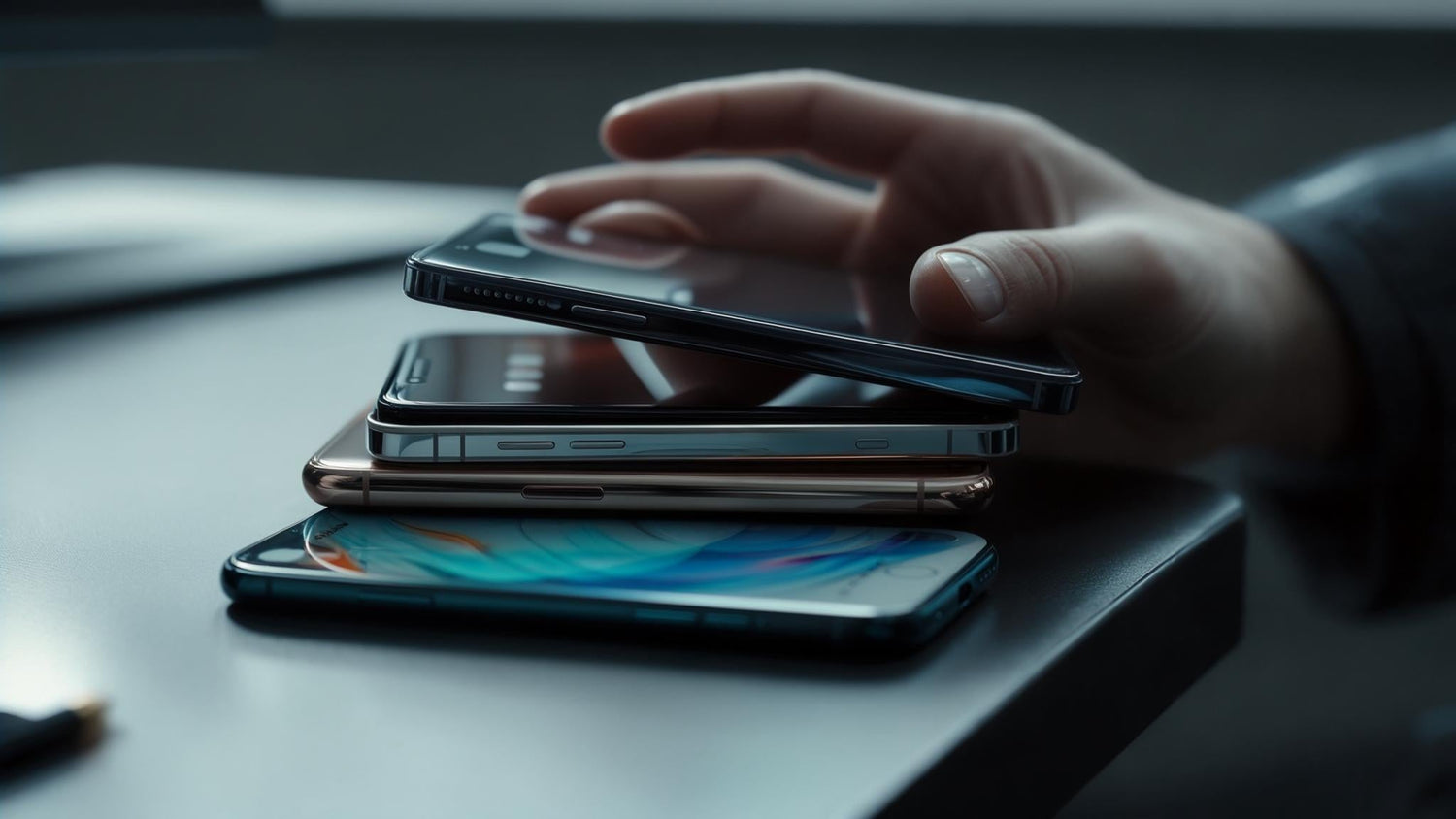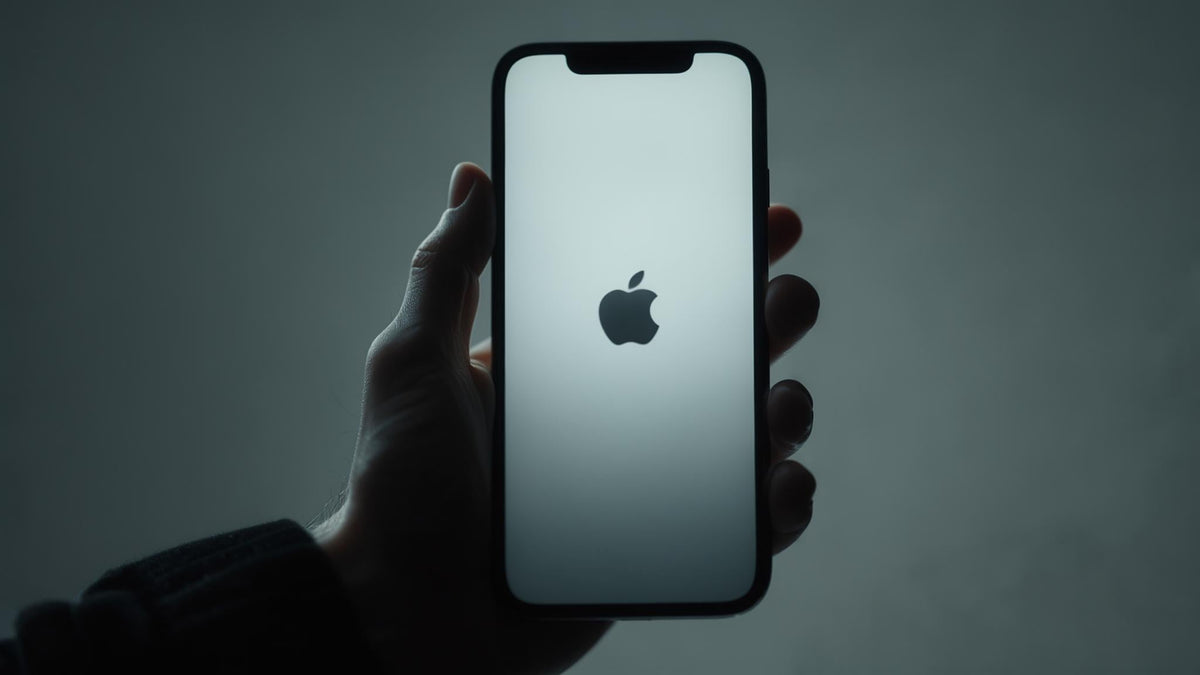Ever spent three hours comparing phone specs only to realize you're more confused than when you started? Yeah, me too. Last year I nearly bought a $1,200 phone because it had a "revolutionary" camera I'd probably never use.
The reality? Most people end up either overpaying for features they'll never touch or settling for something that drives them crazy every single day. This guide cuts through the marketing BS by showing you 25 phones that actually excel at specific things, backed by real testing and honest talk about what sucks and what doesn't.
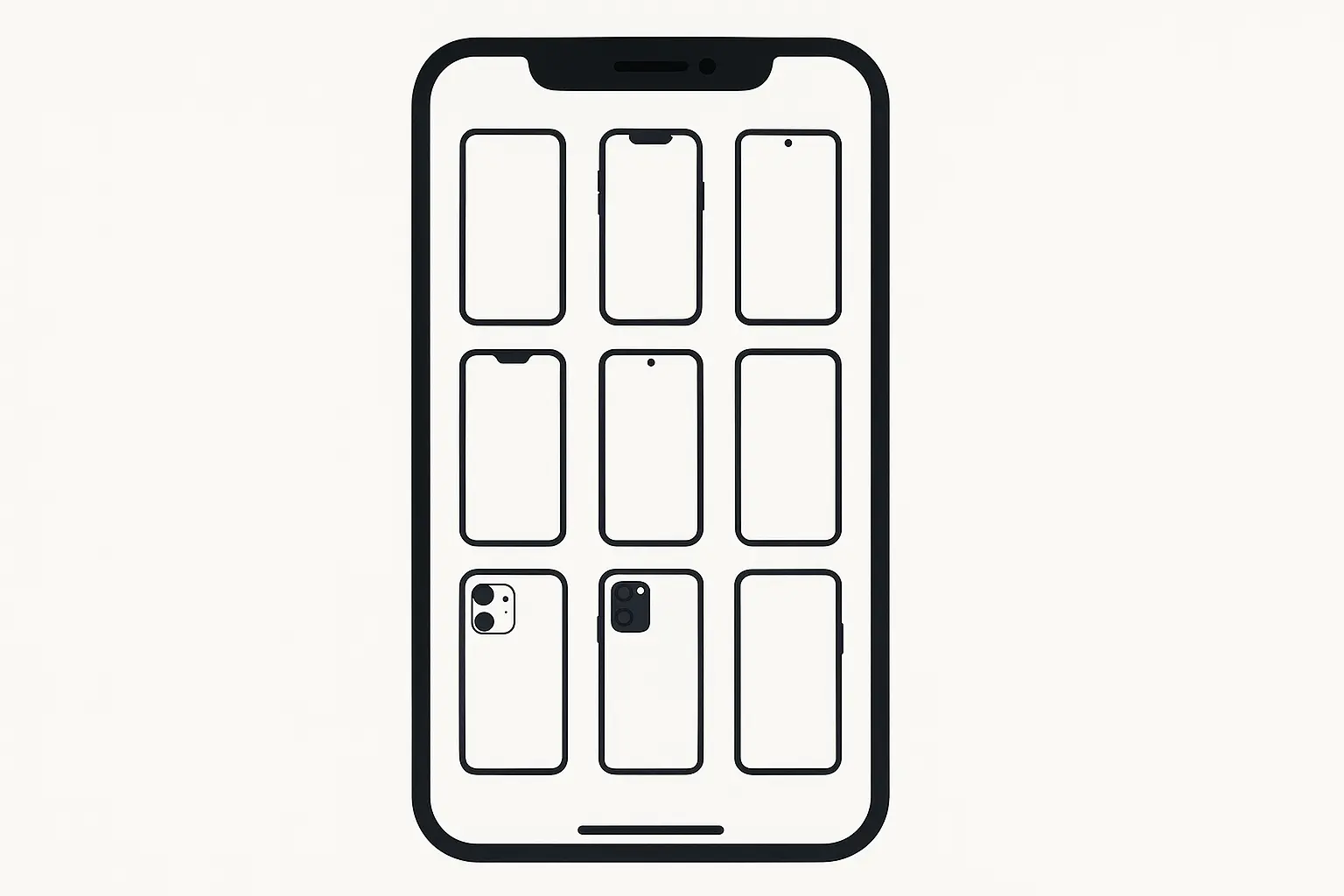
Table of Contents
Essential Factors for Smart Phone Selection
Flagship Premium Powerhouses (Top-Tier Performance)
Premium Mid-Range Champions (Best Value Proposition)
Budget-Conscious Excellence (Under $500 Winners)
Specialized Use Cases (Niche Requirements)
Rugged and Outdoor-Focused Devices
International and Value Options
Detailed Performance Analysis by Category
Budget and Value Breakdown
Camera Capability Deep Dive
Software Longevity Considerations
Durability and Build Quality Assessment
Protecting Your Investment with Rokform
Final Thoughts
TL;DR
Your budget's just the starting point - total cost (including the case you'll definitely need and repairs you'll probably need) matters more
iPhone 15 Pro Max, Galaxy S24 Ultra, and Pixel 8 Pro dominate flagships with different strengths: ecosystem lock-in, Swiss Army knife versatility, and AI magic
Mid-range phones like iPhone 15, Galaxy S24, and Pixel 8 give you 90% of the flagship experience without the premium price guilt
Budget champions Pixel 7a and Galaxy A54 5G prove you don't need to break the bank for a phone that doesn't suck
Foldables, gaming phones, and rugged devices solve specific problems but aren't for most people
Everyone promises 5-7 years of updates now, so longevity isn't the differentiator it used to be
Camera performance hit a plateau - computational photography matters more than megapixel bragging rights
Quality protection is essential when screen replacements cost more than some entire phones
Essential Factors for Smart Phone Selection
Here's the truth: your phone choice will bug you daily for the next 2-4 years if you get it wrong. So let's skip the marketing fluff and focus on what actually matters when figuring out which phone should I get.
Budget Reality Check
Forget the sticker price for a minute. That $1,200 iPhone? Add another $200 for a decent case, screen protector, and chargers you'll inevitably lose. Meanwhile, that "cheap" $400 phone might need replacing in 18 months.
Here's what nobody tells you: premium phones hold their value way better. My iPhone Pro from two years ago? Still worth $600. My friend's budget Android from the same time? Lucky to get $100.
If you're keeping your phone for 3+ years (and you should), spending more upfront often costs less per year. Plus you won't hate using it by month six.
Price Tier |
Initial Cost |
2-Year Resale Value |
Annual Cost |
Total Cost of Ownership |
|---|---|---|---|---|
Flagship ($1000+) |
$1200 |
$600 (50%) |
$300 |
$900 (with accessories) |
Mid-Range ($500-800) |
$650 |
$260 (40%) |
$195 |
$585 (with accessories) |
Budget ($300-500) |
$400 |
$100 (25%) |
$150 |
$450 (with accessories) |
Do You Actually Need All That Power?
Unless you're editing 4K videos or playing hardcore mobile games, you probably don't need a flagship processor. Instagram, texting, and taking photos work just fine on mid-range chips.
Battery life matters more than benchmark scores. Can you charge at work? Need all-day juice? Fast charging can save a smaller battery, but only if you remember to actually plug it in.
For professionals in demanding environments, understanding how protective accessories work with powerful devices becomes crucial. Our best phone cases for construction workers guide shows how even the most powerful phones need serious protection to survive tough job sites.
Here's a real example: My buddy Alex streams mobile games for 6 hours straight. The Galaxy S24 Ultra starts throttling after 30 minutes, but the gaming-focused ROG Phone keeps going. For everyone else? The Ultra is overkill.
Camera Truth Bomb
Megapixels are mostly marketing BS now. A 12MP iPhone often beats a 108MP Android because computational photography matters more than raw specs.
Multiple cameras sound cool, but when's the last time you used that macro lens? The main camera does 90% of the work. Get a phone with one excellent camera rather than four mediocre ones.
Night photos separate the good from the great. Google Pixels punch way above their price here thanks to computational magic.
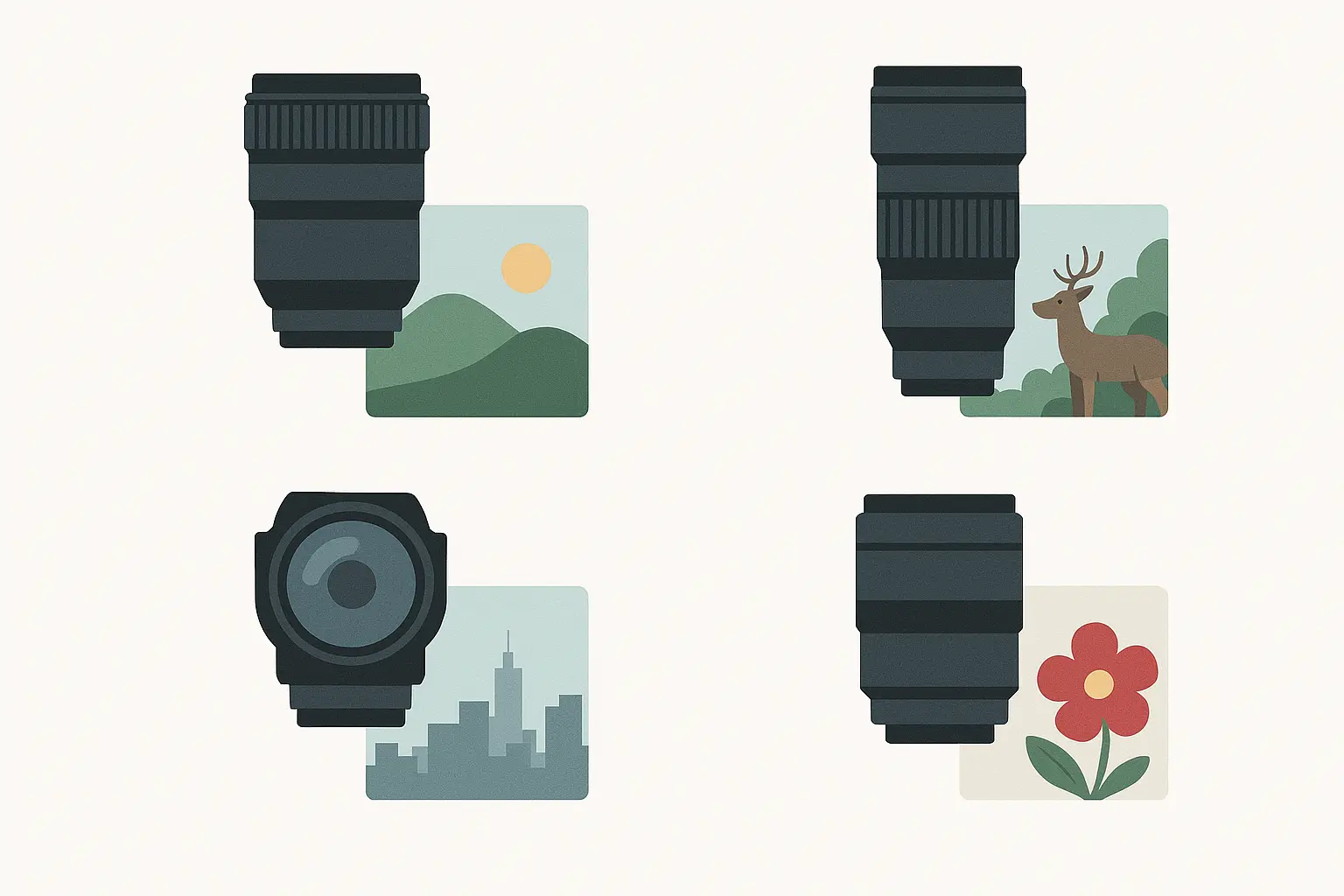
Flagship Premium Powerhouses (Top-Tier Performance)
These are the show-offs of the phone world. Expensive? Absolutely. Worth it? Depends on your priorities and whether you actually need what they're selling.
1. iPhone 15 Pro Max
The A17 Pro chip is stupidly fast. Like, "renders 4K video while you're doing ten other things" fast. The titanium build actually makes a difference - it's noticeably lighter than the steel models.
The camera stays consistent across lighting conditions. Not always the sharpest, but rarely disappointing. That Action Button? More useful than expected once you set it up.
Downside: It's huge. Like, "doesn't fit in normal pockets" huge. And expensive enough to make your wallet weep. But if you're locked into Apple's ecosystem and want the absolute best they offer, this is it.
2. Samsung Galaxy S24 Ultra
The S Pen integration makes this phone unique in ways that actually matter. Actually useful for notes, photo editing, and looking professional in meetings. The camera system goes nuts with zoom - you can practically spy on your neighbors.
That 6.8-inch screen is gorgeous but feels like carrying a small tablet. Battery life is solid, and Samsung promises 7 years of updates (we'll see if they stick to it).
The 200MP main sensor gives you crazy cropping flexibility, though most of the time you won't need it. Still, when you do, you'll be glad it's there.
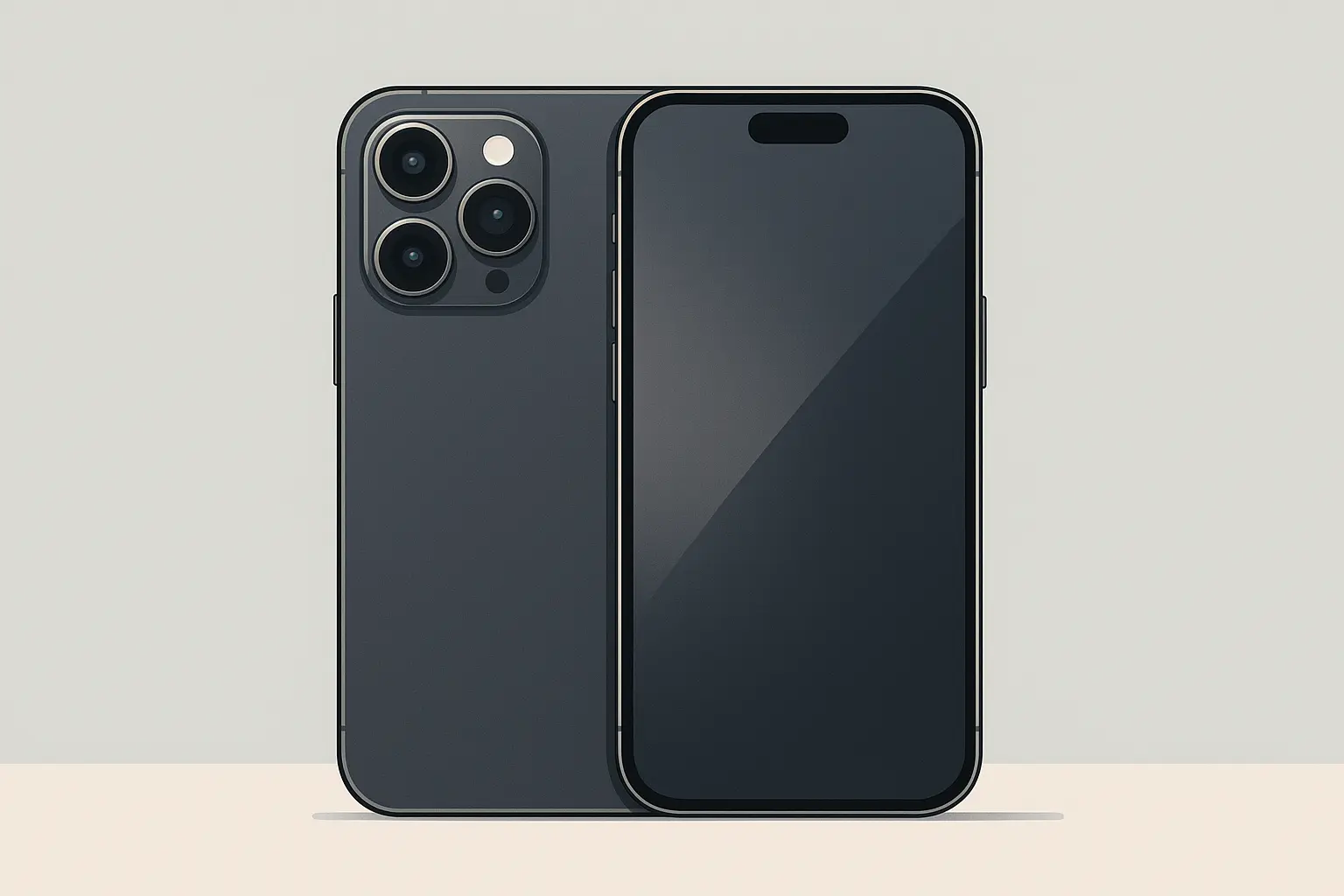
3. Google Pixel 8 Pro
Google's AI integration creates genuinely helpful features you can't get elsewhere. Call screening saves you from spam, live translation works surprisingly well, and the camera's computational photography makes everyone look good in photos.
The Tensor G3 chip isn't benchmark-topping, but it handles real-world tasks smoothly. Pure Android means fast updates and no bloatware nonsense.
Magic Eraser, Real Tone, and Night Sight aren't just marketing gimmicks - they actually solve real problems people have with phone cameras.
4. iPhone 15 Pro
Same performance as the Pro Max in a size that won't require cargo pants. The 6.1-inch display hits the sweet spot for one-handed use while keeping all the premium features.
Camera capabilities match the bigger model, including that advanced telephoto system. The smaller form factor doesn't compromise core functionality - you just get less battery life and screen space.
Battery life is shorter than the Max, but still gets most people through a full day without anxiety.
Premium Mid-Range Champions (Best Value Proposition)
This is the sweet spot where most people should shop. You get 90% of flagship performance without the premium price tag guilt.
5. iPhone 15
Same A16 Bionic chip as last year's Pro models. For normal people doing normal phone things, it feels identical to the Pro Max. The camera got a nice upgrade, and USB-C finally arrived (only took them forever).
Build quality matches the expensive models. You're mainly paying less for a smaller screen and fewer camera tricks you probably won't use anyway.
The main camera produces results that satisfy most people's Instagram needs. You lose the telephoto lens, but honestly, how often do you really use it?
6. Samsung Galaxy S24
Flagship guts in a more reasonable size. The Snapdragon 8 Gen 3 processor handles anything you throw at it. Camera's really good, just not "zoom to the moon" good like the Ultra.
One-handed use actually works, unlike these tablet-sized flagships everyone's making now. The 6.1-inch display provides good balance between usability and screen real estate.
Samsung's software features are mostly retained, so you get the customization options and productivity tools without paying Ultra money.
Take my friend Sarah - she's a marketing pro who thought she needed the $1,400 Galaxy S24 Ultra for client photos. Turns out the regular S24 takes identical shots for her Instagram posts, and she saved $400 for actual camera equipment.
7. Google Pixel 8
All of Google's camera magic at a lower price. The photos look identical to the Pro model for most situations. Seven years of updates is genuinely impressive and puts Samsung and Apple to shame.
Clean Android experience appeals to people tired of manufacturer bloatware. Fast security updates matter more than most people realize.
The Tensor G3 chip enables the same AI features as the Pro model. You mainly lose the telephoto lens and some display brightness, but daily usage feels nearly identical.
8. OnePlus 12
OnePlus remembered what made them popular in the first place - flagship performance without flagship pricing. The Snapdragon 8 Gen 3 processor handles everything smoothly while ultra-fast charging reduces downtime.
OxygenOS strikes a good balance between customization and stability. The interface feels clean while offering more options than stock Android.
Build quality feels premium despite the lower price. Fast charging speeds (often 80W+) provide real advantages for people with busy schedules who forget to charge overnight.
9. Samsung Galaxy S23 FE
Samsung's "Fan Edition" gives you flagship features at mid-range pricing. Premium design language makes it feel more expensive than it actually is.
Camera performance handles daily photography needs effectively. While it doesn't match the Ultra's capabilities, results satisfy most people's social media requirements.
Good entry point into Samsung's ecosystem with access to Galaxy features and services. Software support matches Samsung's premium models with extended update commitments.
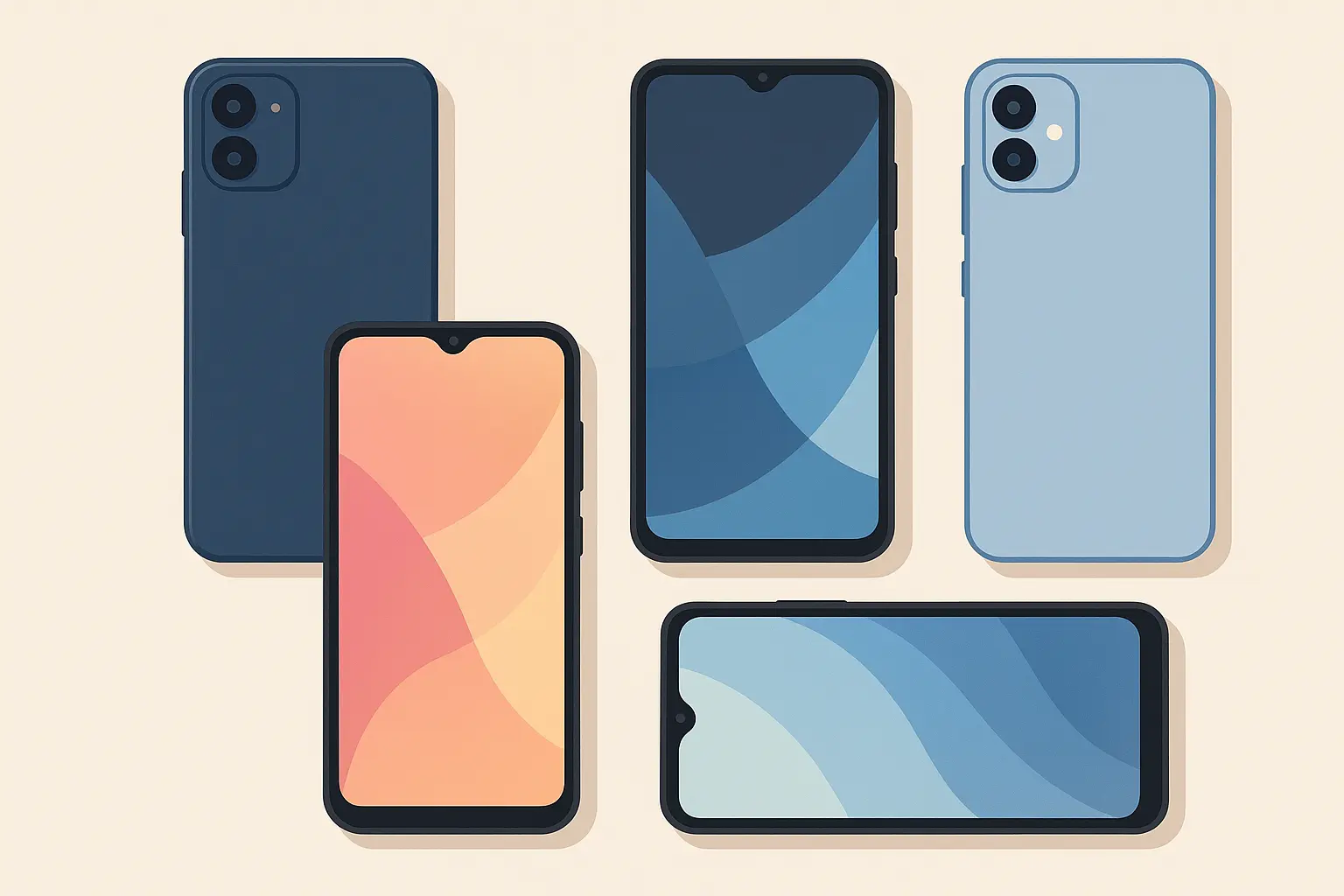
Budget-Conscious Excellence (Under $500 Winners)
Budget phones got scary good. You're making compromises, but not the painful ones from five years ago.
10. Google Pixel 7a
Google's computational photography magic at mid-range pricing is almost unfair to the competition. Night Sight works identically to the flagship Pixels. The Tensor G2 enables features usually reserved for expensive phones.
Wireless charging at this price point? Nice bonus. The camera punches so far above its weight class it's almost comical.
Guaranteed Android updates provide long-term value that most budget phones can't match. You're getting flagship camera features for half the price.
11. Samsung Galaxy A54 5G
Samsung's design language makes this look way more expensive than it is. The display is genuinely excellent - bright, colorful, good in sunlight. Battery life often beats flagship phones.
You get most of Samsung's software features without the premium price. Not the fastest, but plenty smooth for daily use.
Camera performance handles casual photography needs across multiple lenses. While it won't win any awards, it gets the job done for social media and family photos.
12. iPhone SE (4th Generation)
Still waiting on this one, but if Apple follows their usual pattern, it'll pack flagship performance into a budget price. Entry ticket to the iOS ecosystem without selling organs.
Expected to feature Face ID, larger display, and current-generation performance. Timing's unclear, but Apple's track record suggests it'll be worth waiting for if you want iOS on a budget.
13. OnePlus Nord 4
OnePlus's mid-range focus on performance and fast charging. Clean Android experience with solid build quality that punches above its price point.
Performance handles daily tasks smoothly while fast charging provides practical advantages. Build quality feels premium despite the lower cost.
Good option for people who want OnePlus features without flagship pricing. Software experience remains clean with reasonable update commitments.
14. Motorola Edge (2024)
Motorola's return to premium mid-range territory with near-stock Android and excellent battery life. Clean software experience appeals to people tired of manufacturer customization.
Battery life often exceeds more expensive competitors while performance handles daily tasks effectively. Build quality feels more premium than the price suggests.
Software updates have improved under Motorola's current strategy, providing better long-term support than previous generations.
Budget Phone |
Price |
Key Strength |
Camera Rating |
Battery Life |
Update Promise |
|---|---|---|---|---|---|
Pixel 7a |
$499 |
Computational Photography |
9/10 |
8/10 |
7 years |
Galaxy A54 5G |
$449 |
Display Quality |
7/10 |
9/10 |
4 years |
OnePlus Nord 4 |
$399 |
Fast Charging |
7/10 |
8/10 |
3 years |
Motorola Edge |
$379 |
Battery Life |
6/10 |
9/10 |
2 years |
Specialized Use Cases (Niche Requirements)
These aren't for everyone, but they excel in particular areas while making trade-offs elsewhere.
15. Samsung Galaxy Z Fold 6
It's a tablet that folds into a phone. Productivity is genuinely impressive - you can run multiple apps like a laptop. Perfect for people who need maximum screen space but still want pocket portability.
Foldable design provides tablet functionality when needed while maintaining phone portability. Multitasking capabilities exceed traditional phones with multiple app windows.
Durability concerns are real, and the price is eye-watering. Early adopter territory, but genuinely useful if you need laptop-replacement capabilities.
16. Samsung Galaxy Z Flip 6
Unique portability in flip phone design. When folded, it becomes incredibly compact while the cover screen provides quick access to essential functions.
Full smartphone functionality when opened with flagship performance. The compact folded size fits easily in small pockets or bags.
Fashion-forward design appeals to people who want distinctive aesthetics. However, the folding mechanism adds complexity and potential durability concerns.
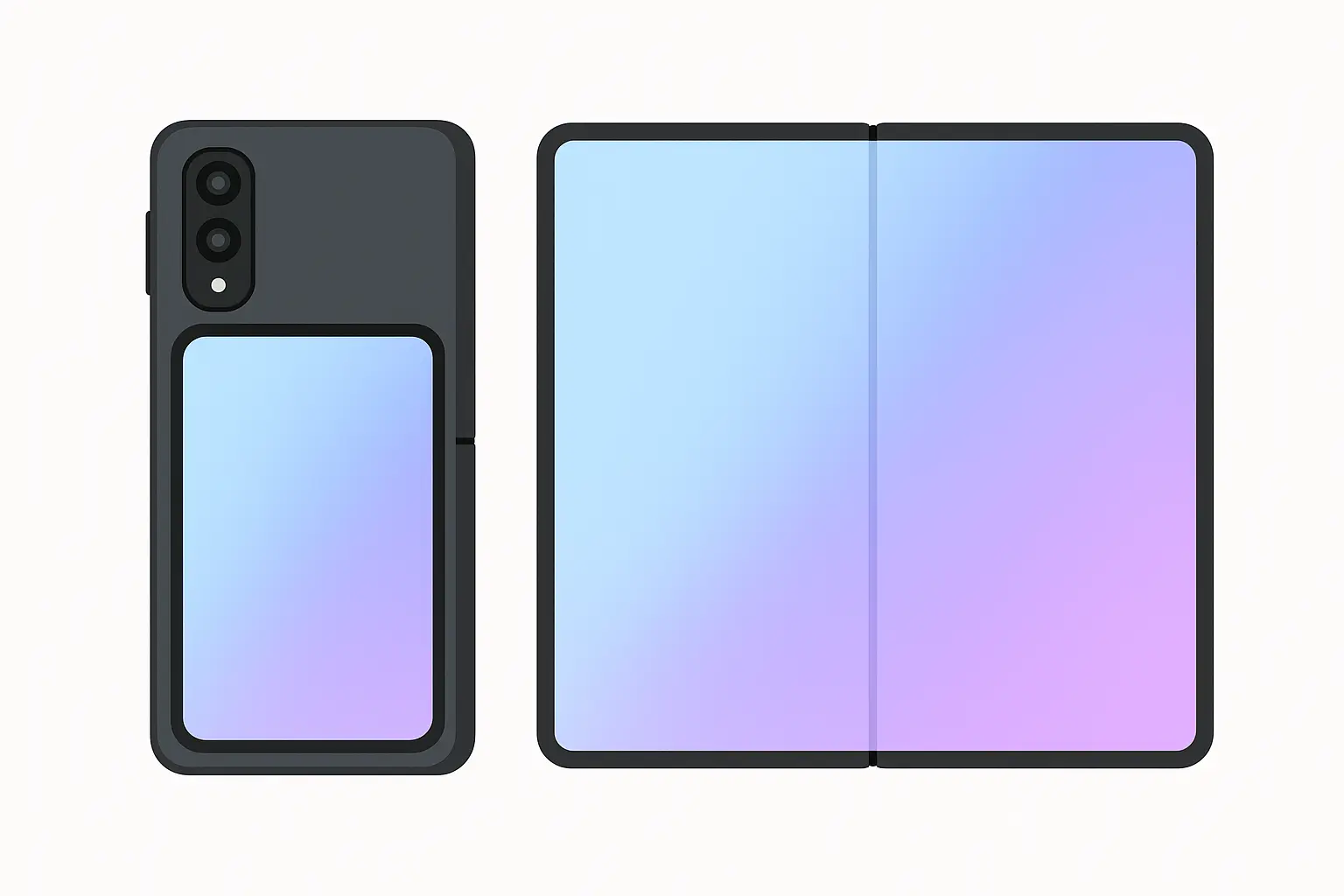
17. iPhone 15 Plus
Large-screen iPhone experience without Pro pricing. The 6.7-inch display and improved battery life appeal to people who prioritize screen size and all-day usage.
Same A16 chip performance as the iPhone 15 with better battery life due to larger size. Camera capabilities match the standard model without Pro-specific features.
Good option for people who want large iPhone experience but don't need Pro camera features. Battery life often exceeds the Pro models.
18. ASUS ROG Phone 8
Built specifically for mobile gaming with advanced cooling, gaming-focused features, and accessories. Sustained performance during long sessions beats mainstream phones that throttle after 20 minutes.
High refresh rate display, gaming-optimized software, and specialized controls provide advantages for mobile gaming enthusiasts. Cooling systems prevent thermal throttling.
Gaming-focused design won't appeal to everyone. Camera's decent but not flagship-level. If you're serious about mobile gaming, this makes sense. Otherwise, skip it.
19. Sony Xperia 1 VI
Professional camera controls and excellent video recording target photography enthusiasts. Advanced manual controls and unique 21:9 aspect ratio display provide distinctive experience.
Video recording capabilities often exceed other flagships with professional-grade features. The tall display format works well for video content and multitasking.
Niche appeal limits mainstream adoption. Users who need professional camera controls will appreciate the features, but casual photographers may find the interface complex.
Rugged and Outdoor-Focused Devices
Specialized devices for people whose phones need to survive conditions that would kill regular smartphones.
20. CAT S75
Military-grade everything. Satellite connectivity for true off-grid communication. Thermal imaging for professional applications. Built like a tank.
Satellite connectivity provides communication where cellular coverage doesn't exist. Thermal imaging and specialized tools serve professional applications in construction, emergency services, and outdoor work.
Performance lags behind mainstream phones, but it'll survive situations that would kill a regular smartphone. Perfect for construction, outdoor work, or adventure enthusiasts who need ultimate reliability.
21. Samsung Galaxy XCover 7
Samsung's attempt at rugged that doesn't completely sacrifice smartphone features. Removable battery, works with gloves, handles drops and water like a champ.
Mainstream Android experience with Samsung's software features and ecosystem integration. Better camera and performance than specialized rugged devices while maintaining durability.
Better balance of durability and usability than specialized rugged phones. Good middle ground for people who need protection but want modern smartphone features.
For professionals working in challenging conditions, understanding how protective accessories enhance device longevity becomes crucial. Our comprehensive guide on law enforcement phone cases demonstrates how specialized protection meets the demands of high-stress environments.
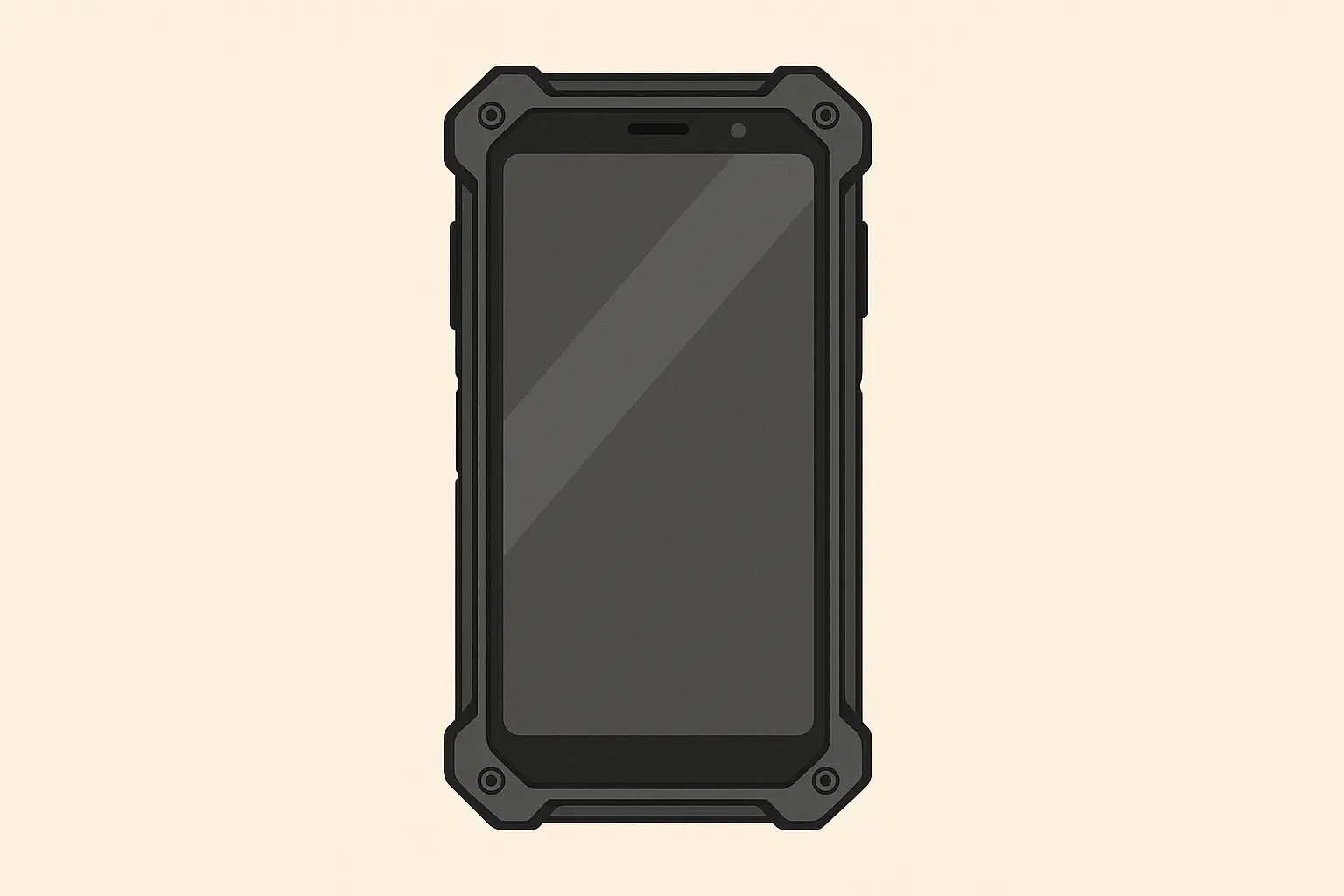
International and Value Options
International brands often provide exceptional value with flagship specifications at competitive pricing, though availability varies by region.
22. Xiaomi 14
Flagship specs at competitive pricing, but availability varies by region. Leica-tuned cameras produce impressive results that rival more expensive competitors. MIUI software experience is love-it-or-hate-it.
Camera performance benefits from Leica partnership with professional-grade results. Build quality and design rival more expensive competitors while undercutting on price.
Limited availability in certain markets and potential warranty concerns require consideration. MIUI differs significantly from stock Android, which some users love and others despise.
23. Nothing Phone (2a)
Transparent design with LED lighting that's actually functional for notifications. Clean Android experience with solid performance for the price.
LED lighting system provides practical notifications and customization options beyond just looking cool. Build quality exceeds expectations for the price point.
Design-focused approach creates distinctive aesthetics. Limited availability but interesting if you want something different from the usual black rectangles.
24. Realme GT 5 Pro
Performance and fast charging focus with flagship processor and rapid charging speeds at competitive pricing. Gaming-optimized features appeal to performance enthusiasts.
Charging technology often leads the industry with 100W+ speeds that fully charge in under 30 minutes. Performance matches more expensive competitors.
Limited availability and brand recognition in certain markets. Software experience may differ from mainstream Android implementations.
25. Fairphone 5
Environmental focus with modular design, sustainable materials, and extended software support. Appeals to environmentally conscious users who prioritize sustainability over cutting-edge performance.
Modular design enables user repairs and component upgrades, extending device lifespan significantly. Sustainable materials and ethical manufacturing address environmental concerns.
Performance lags behind mainstream devices, but the focus on sustainability and repairability provides unique value for environmentally conscious users.
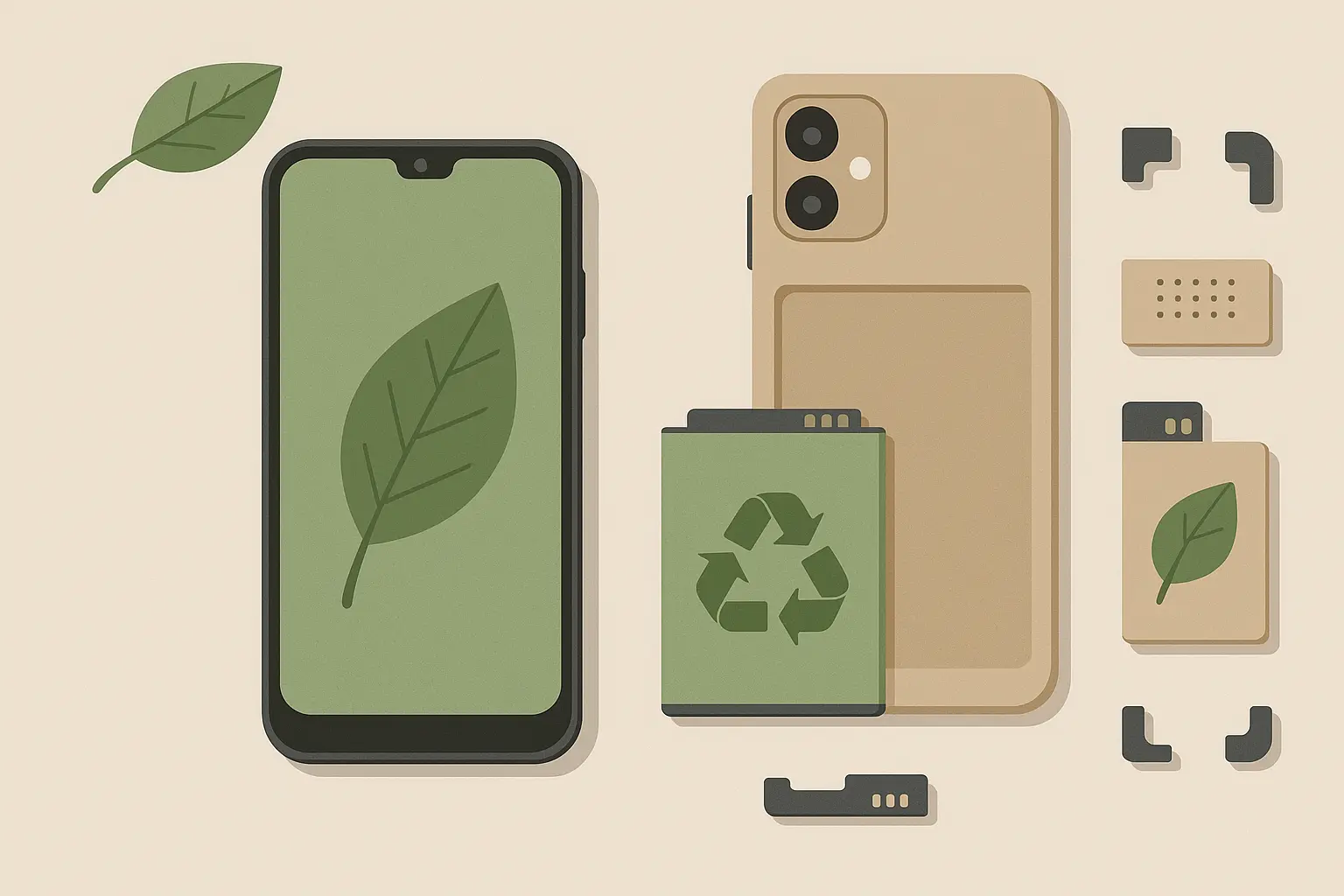
Detailed Performance Analysis by Category
Performance requirements vary dramatically between different user types and usage patterns. Here's the real talk on what you actually need.
Gaming and Heavy Use Performance
iPhone 15 Pro Max, Galaxy S24 Ultra, and ASUS ROG Phone 8 handle anything without breaking a sweat. The A17 Pro and Snapdragon 8 Gen 3 chips are genuinely overkill for most people, but gamers and content creators will appreciate the headroom.
Sustained performance matters more than peak performance. Gaming phones excel here with advanced cooling, while mainstream flagships may throttle during extended intensive use.
Content creation tasks benefit from flagship processors and ample RAM. These devices handle professional workflows that would choke mid-range hardware.
Everyday Performance Reality
Here's the thing about mid-range phones - they feel smooth for normal tasks. App launching, multitasking, and general navigation work without noticeable delays.
Daily tasks like social media, photography, navigation, and casual gaming work smoothly on mid-range chips. You won't notice performance differences scrolling Instagram or taking photos.
Battery life often exceeds flagship devices due to more efficient processors. The performance-per-watt ratio favors mid-range chips for people with typical usage patterns.
Light Use Performance
Budget options handle communication, basic photography, navigation, and light app usage just fine. Performance feels adequate for people with modest requirements.
Power efficiency often exceeds more powerful chips, providing excellent battery life. However, intensive tasks may cause slowdowns or require patience.
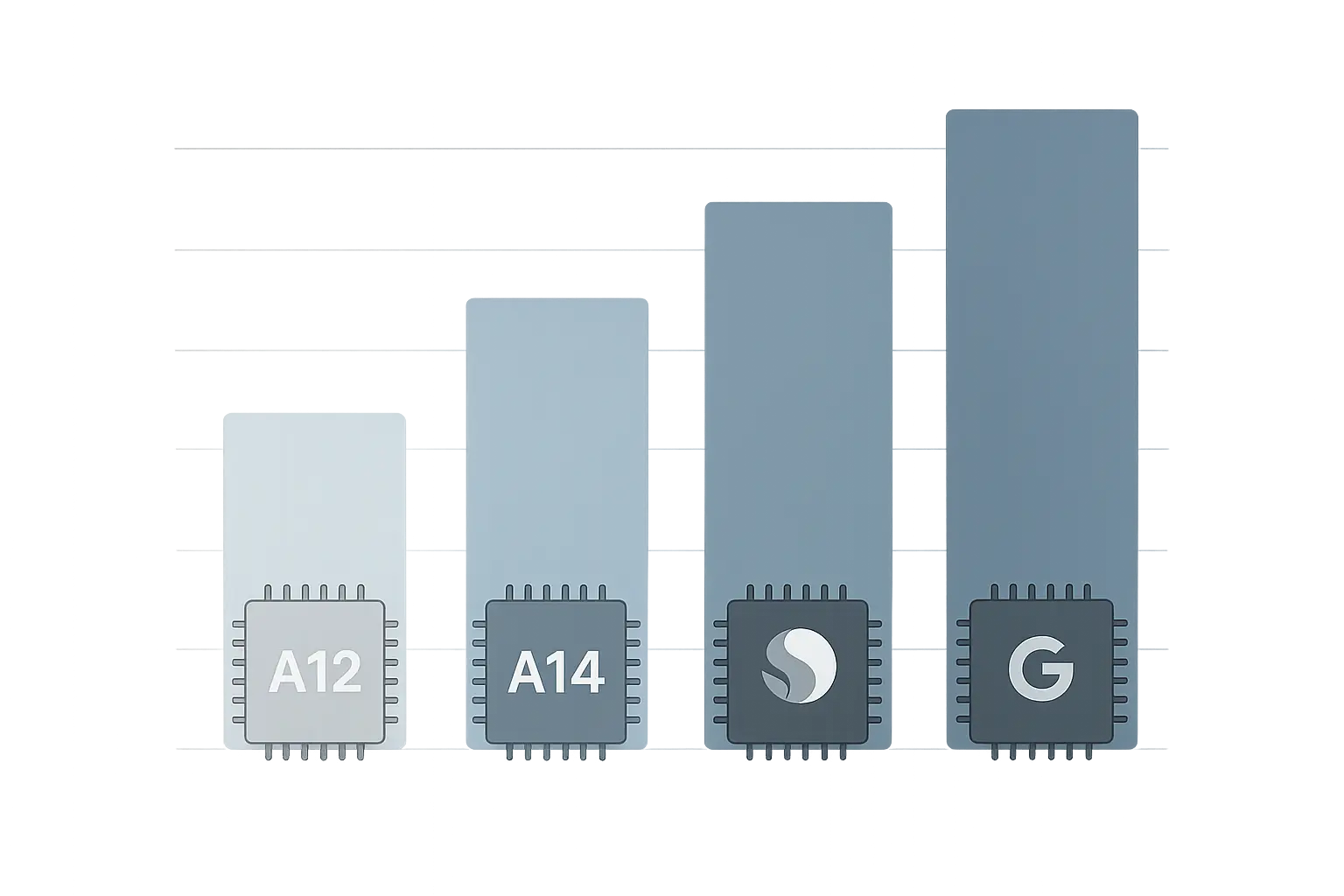
Budget and Value Breakdown
True value analysis requires looking beyond sticker prices to total cost of ownership.
Premium Tier Reality
iPhone 15 Pro Max, Galaxy S24 Ultra, and Pixel 8 Pro justify premium pricing through flagship performance, advanced cameras, and long-term software support.
Resale value stays strong with premium devices retaining 40-60% of original value after two years. This helps offset higher initial investment for people who upgrade regularly.
Software support extends 5-7 years, providing security updates and new features long after purchase. This extended lifespan improves the total value proposition significantly.
Mid-Range Sweet Spot
iPhone 15, Galaxy S24, and Pixel 8 provide excellent balance of features and pricing. These devices offer 80-90% of flagship performance at significantly lower cost.
Daily usage experience closely matches flagship devices while the lower price reduces financial risk. Most people won't notice performance differences in typical usage scenarios.
Good compromise between features and affordability makes these devices ideal for mainstream users who want premium experience without maximum cost.
Budget Champion Value
Pixel 7a and Galaxy A54 5G prove budget phones can provide excellent user experience. While compromises exist in performance and camera quality, daily usability remains strong.
Lower financial risk makes these attractive for first-time smartphone users, backup devices, or people with basic requirements. Battery life often exceeds more expensive devices.
Camera Capability Deep Dive
Camera performance varies significantly between devices and use cases, but the gap has narrowed considerably.
Photography Enthusiast Analysis
Galaxy S24 Ultra leads in versatility with extensive zoom capabilities and multiple lens options. The 200MP main sensor provides flexibility for cropping and detailed shots.
Pixel 8 Pro excels in computational photography with advanced AI processing. Night Sight, Magic Eraser, and Real Tone features demonstrate Google's software advantage over raw hardware.
iPhone 15 Pro Max provides consistent results across all lighting conditions. Video recording capabilities often exceed Android competitors with superior stabilization.
Social Media Content Creation
iPhone 15, Galaxy S24, and Pixel 8 provide excellent camera performance for social media content. Good video capabilities and easy sharing integration serve content creators well.
Portrait mode, night photography, and video recording work reliably across these devices. User-friendly interfaces and automatic modes produce good results without photography expertise.
Basic Photography Needs
Budget options punch above their weight through computational photography. Google's software processing creates results that rival more expensive phones.
Galaxy A54 5G provides solid results for casual photography. While not matching flagship capabilities, the camera handles daily photography tasks effectively.
Camera Category |
Best Flagship |
Best Mid-Range |
Best Budget |
Key Feature |
|---|---|---|---|---|
Overall Versatility |
Galaxy S24 Ultra |
iPhone 15 |
Pixel 7a |
200MP + Zoom vs Computational |
Low Light |
Pixel 8 Pro |
Pixel 8 |
Pixel 7a |
Night Sight Technology |
Video Recording |
iPhone 15 Pro Max |
iPhone 15 |
Galaxy A54 5G |
Stabilization + Processing |
Portrait Mode |
iPhone 15 Pro |
Galaxy S24 |
Pixel 7a |
Depth Sensing vs AI |
Zoom Capabilities |
Galaxy S24 Ultra |
OnePlus 12 |
Galaxy A54 5G |
Optical vs Digital Enhancement |
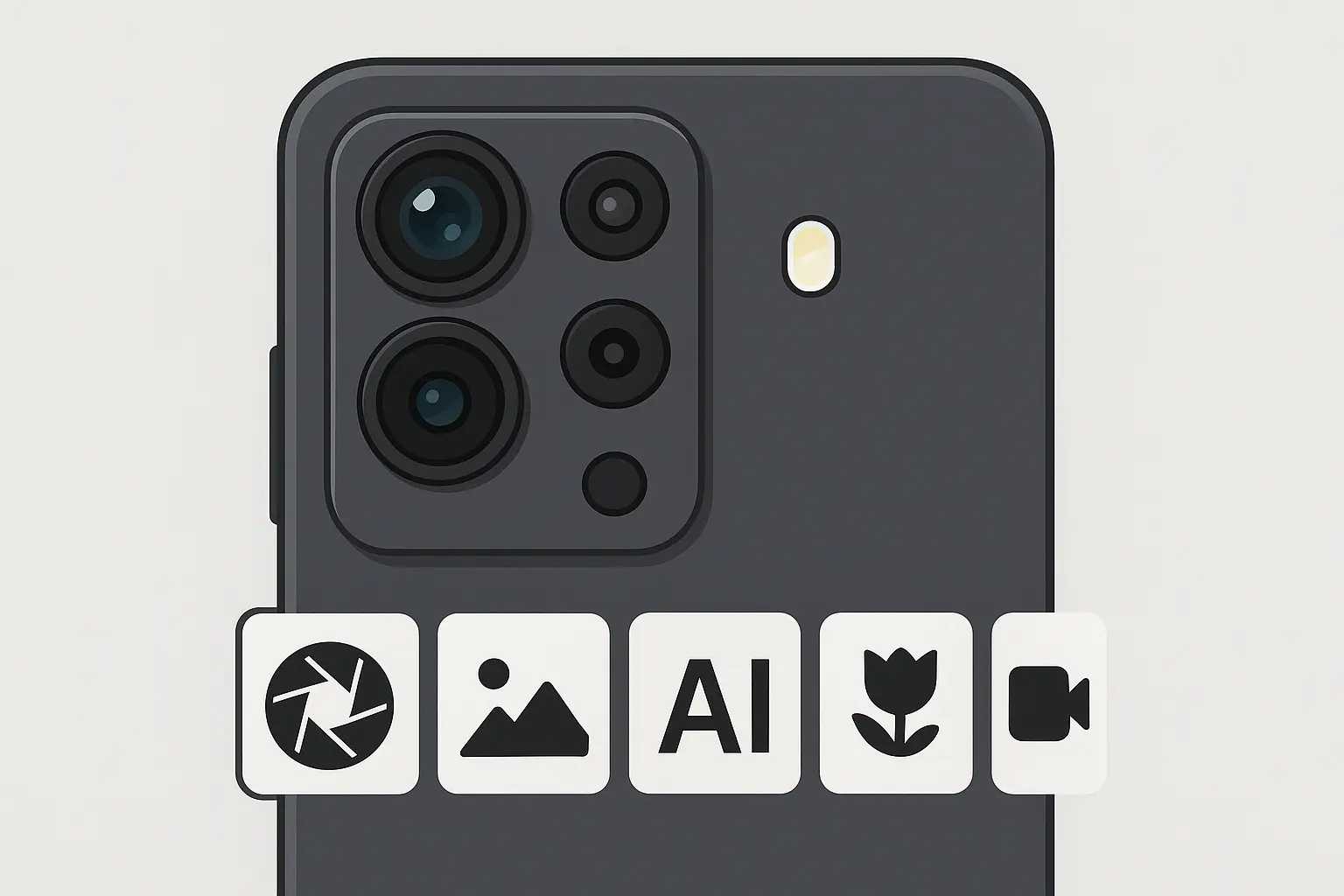
Software Longevity Considerations
Software support duration and quality significantly impact long-term device value and security.
Update Duration Comparison
iPhones typically receive 5-7 years of updates with Apple's strong track record of supporting older devices. iOS updates often bring significant new features even to older hardware.
Google Pixel devices get 7 years of security updates with fastest Android update delivery. Pure Android experience ensures compatibility with new features and security patches.
Samsung now matches this with 7 years of support on flagship devices. The company has significantly improved its update track record in recent years.
Software Experience Quality
Pixel devices offer the purest Android experience with fastest updates and cleanest interface. Google's approach prioritizes simplicity and quick access to new Android features.
iPhones provide the most integrated ecosystem experience with seamless device connectivity. iOS updates bring consistent feature additions across the entire device lineup.
Samsung and OnePlus offer feature-rich experiences with more customization options. These manufacturer skins add functionality but may slow update delivery.
Durability and Build Quality Assessment
Build quality and dur ability directly impact long-term satisfaction and repair costs.
Premium Construction Analysis
iPhone 15 Pro models feature titanium construction providing premium feel while reducing weight. The material offers excellent durability and corrosion resistance.
Galaxy S24 Ultra uses aluminum frame with Gorilla Glass protection. Both materials provide solid protection against drops and scratches while maintaining premium aesthetics.
Water resistance ratings (IP68) on premium devices protect against accidental submersion and daily moisture exposure. These ratings provide peace of mind for active users.
Everyday Durability Expectations
Mid-range options provide solid build quality that withstands normal use. While premium materials are reserved for higher tiers, construction quality remains good.
Glass and aluminum construction feels premium while providing adequate drop protection. Water resistance ratings protect against common moisture exposure.
Repair costs remain reasonable compared to ultra-premium models. Screen replacements and battery services cost less than flagship devices.
Rugged Protection Options
CAT S75 and Galaxy XCover 7 provide military-grade protection for users in demanding environments. These devices withstand conditions that would destroy standard smartphones.
Removable batteries, reinforced construction, and enhanced environmental sealing serve professional applications. Physical buttons work with gloves and in wet conditions.
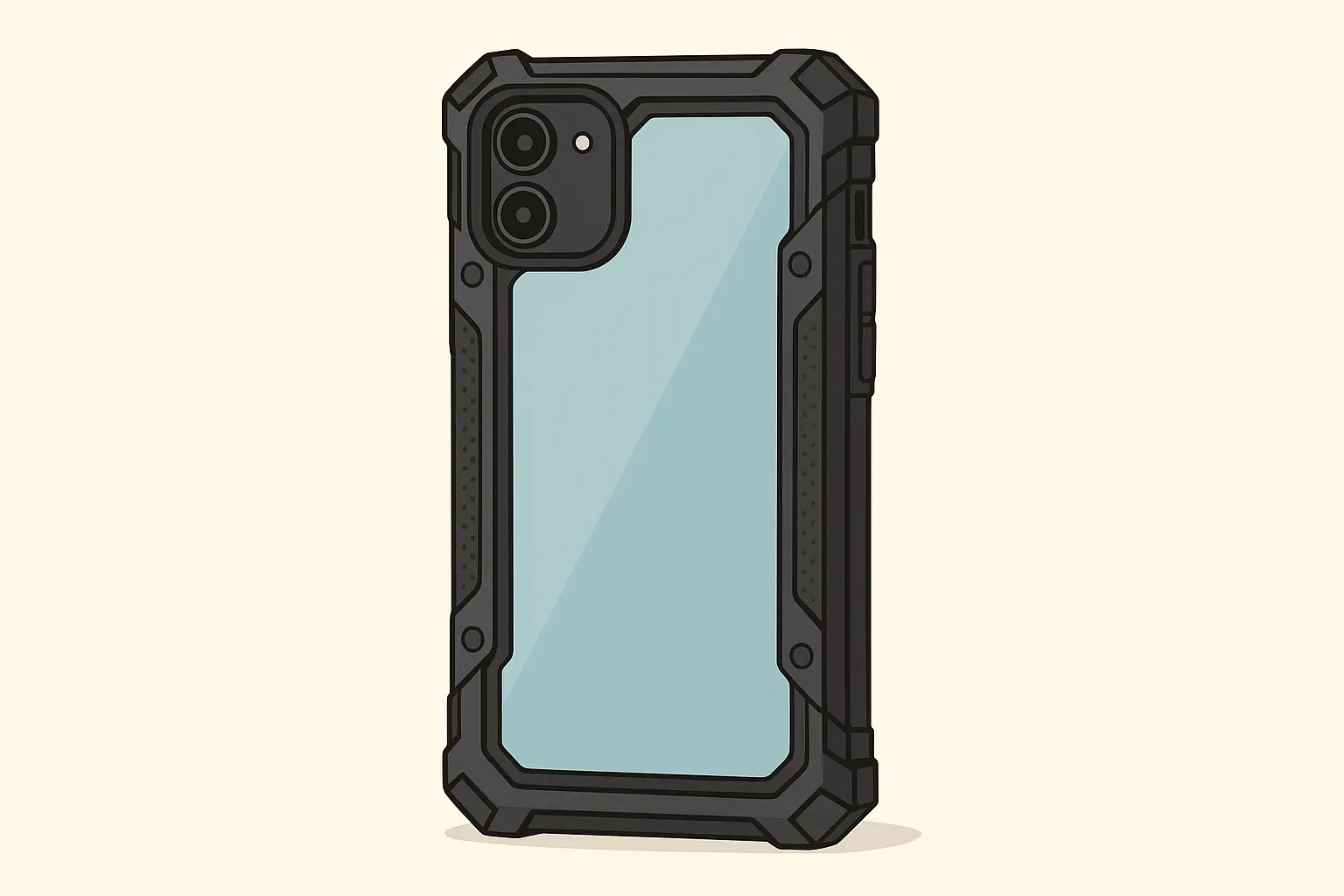
Protecting Your Investment with Rokform
Here's where protection actually matters. Dropping a $1,200 phone feels like watching money bounce off concrete.
Advanced Protection Technology
Rokform's military-grade materials provide protection tested to military standards. Aircraft-grade aluminum and premium polycarbonate offer superior impact resistance compared to basic cases.
Quality cases prevent expensive repairs and maintain resale value. The investment in proper protection pays for itself by preventing a single major repair where screen replacements often cost $300-500.
Magnetic Mounting Innovation
MAGMAX™ magnetic technology provides secure mounting solutions for various activities. Whether following GPS navigation, taking video calls, or needing hands-free access while working, the magnetic system offers convenience basic cases can't match.
MagSafe and wireless charging compatibility ensures full functionality while maintaining protection. Many cases interfere with these features, but Rokform's design preserves all device capabilities.
For users needing specialized mounting solutions, understanding different mount options becomes crucial. Our comprehensive best car phone mounts guide demonstrates how magnetic mounting systems provide superior convenience and security.
Motorcycle and vehicle mounts address specific challenges of using smartphones while riding or driving. Vibration dampening technology protects delicate camera systems while providing secure mounting.
Long-term Value Protection
Quality protection helps maintain resale value, particularly important for premium phones that retain value well. Devices in excellent condition command significantly higher resale prices.
Rokform's durable construction means the case will likely outlast your phone upgrade cycle. The protection investment provides value across multiple device generations.
RokLock™ security system provides four-point security (twist lock, magnet, safety lanyard, and case) ensuring your expensive smartphone stays secure even in challenging conditions.
Active users benefit from understanding specialized protection needs. Our guide on best phone cases for paramedics shows how demanding professions require both superior protection and quick access functionality.
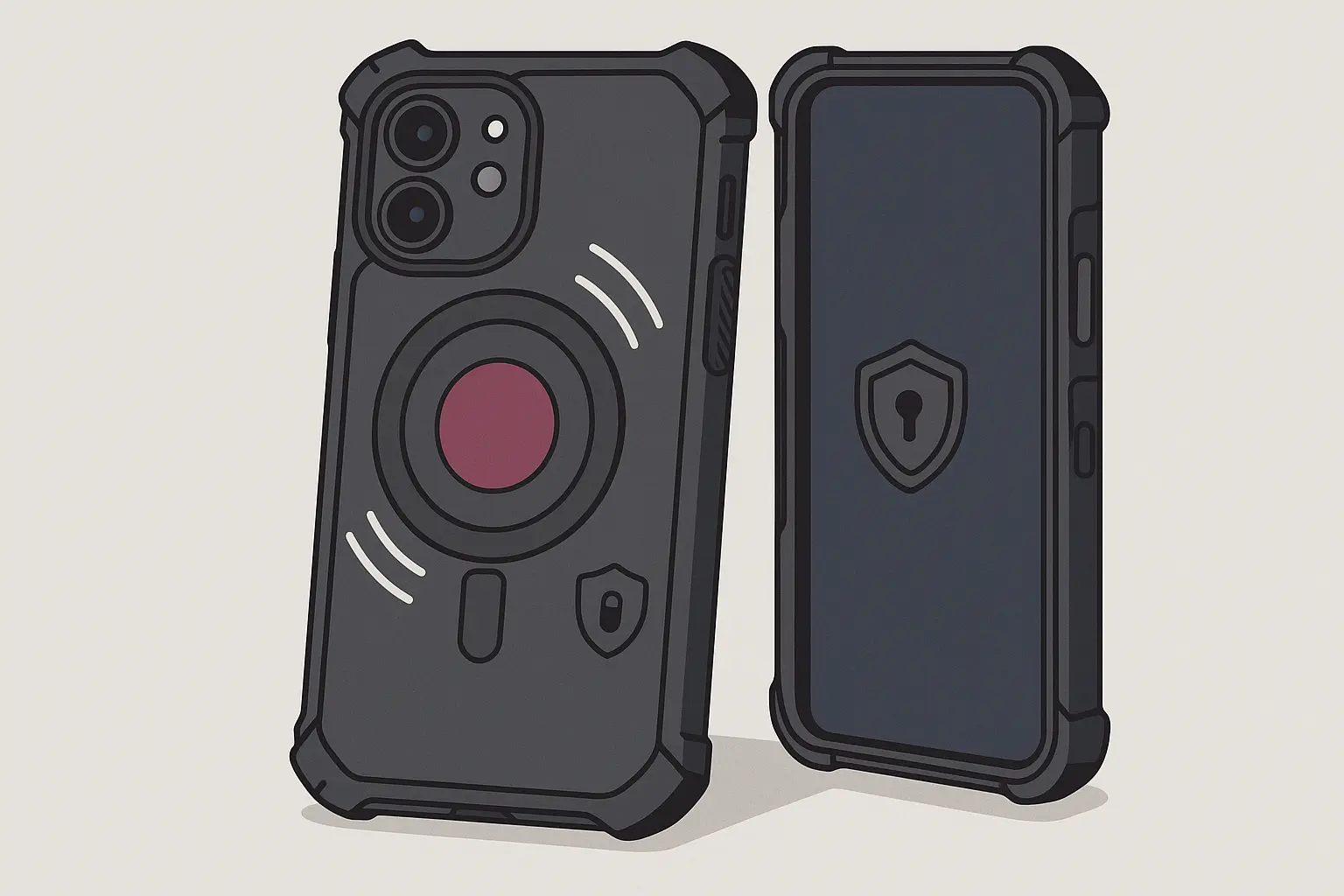
Final Thoughts
The smartphone landscape in 2025 offers exceptional choices across every price point and use case. Whether you prioritize camera excellence, gaming performance, productivity features, or simply want reliable daily performance, there's a device that matches your needs and budget.
Success in phone selection comes from honest assessment of your actual usage patterns rather than getting caught up in specifications or marketing claims. The iPhone 15 Pro Max excels for users invested in Apple's ecosystem who want premium performance. The Galaxy S24 Ultra serves power users who need laptop-like productivity with S Pen functionality. Google's Pixel 8 Pro delivers AI-first features and computational photography excellence.
Mid-range champions provide 80-90% of flagship performance at significantly lower costs, representing the sweet spot for most users. Budget options prove that excellent smartphone experiences don't require premium pricing.
Understanding the complete ecosystem of smartphone accessories helps maximize your device investment. Our detailed comparison of best magnetic car phone mounts illustrates how the right accessories transform your smartphone into a comprehensive mobile solution.
Remember that your phone choice impacts your daily life for 2-4 years. Factor in total cost including accessories, protection, and potential repairs. Quality cases aren't just accessories - they're insurance for your digital life and investment protection.
The best phone for you matches your actual needs, fits your budget, and provides features you'll use daily. When asking yourself which phone should I get, focus on real-world usage patterns rather than impressive specifications you'll never utilize.
For users seeking comprehensive protection solutions, exploring specialized mounting options becomes essential. Our analysis of best phone mounts for cars demonstrates how quality mounting systems enhance both device protection and daily functionality across various scenarios.
Don't overpay for capabilities you'll never use, but don't compromise on features that matter to your specific usage patterns. The right phone feels invisible in daily use - it just works without frustration.







